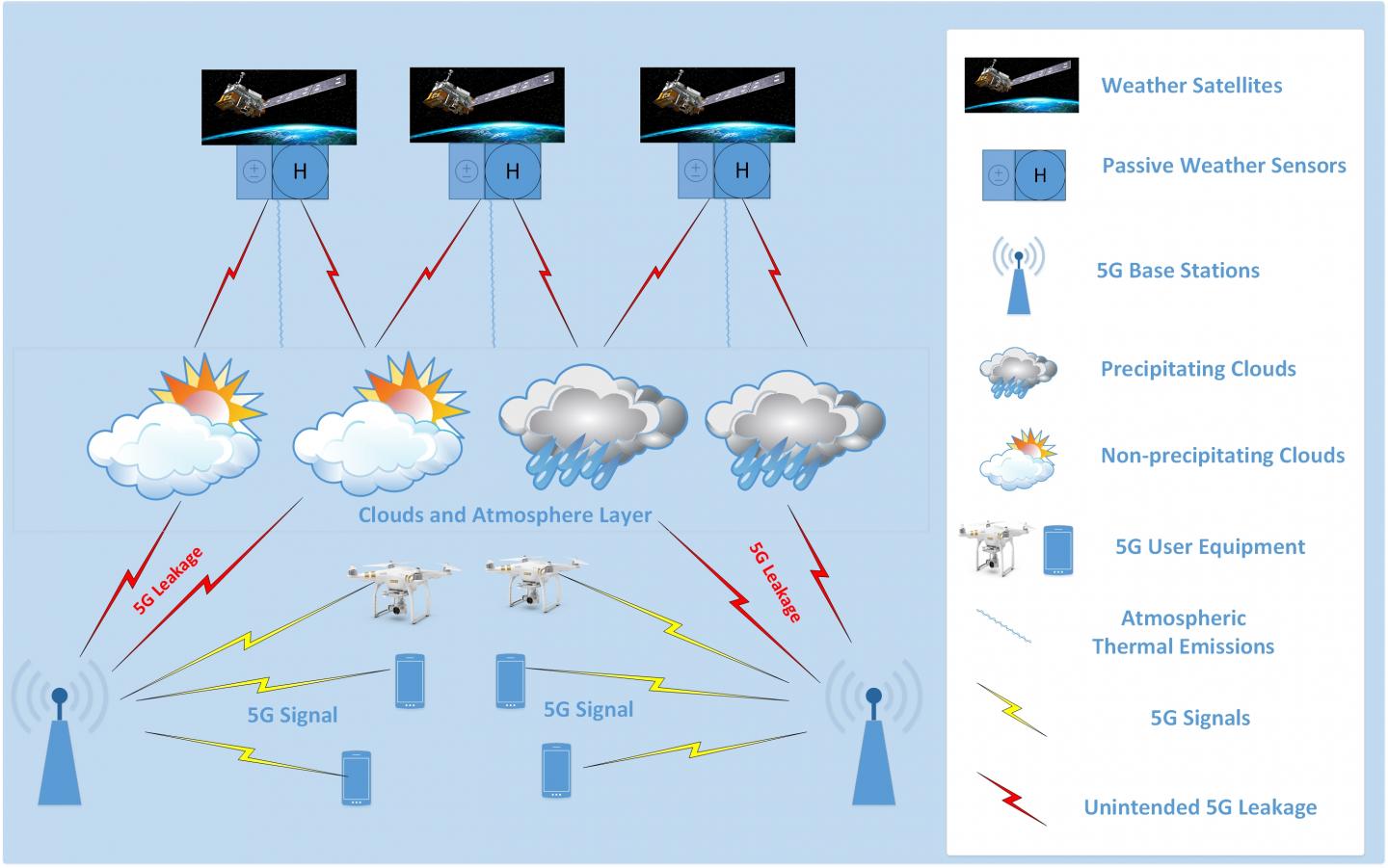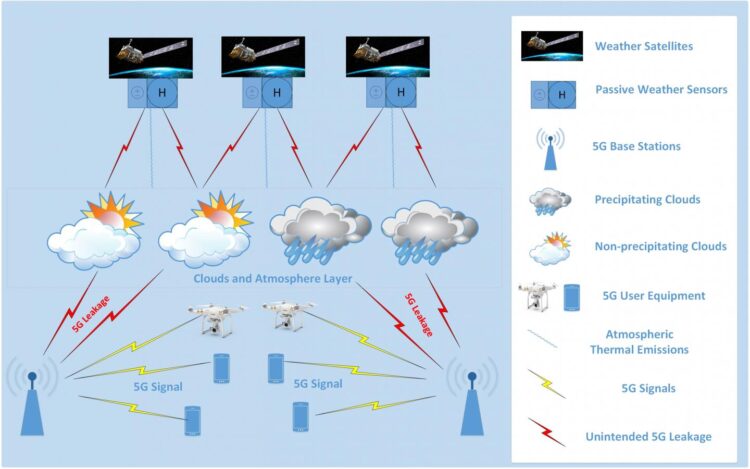Rutgers study is the first to model impact of 5G radiation “leakage” on forecasting

Credit: Mohammad Yousefvand
Upcoming 5G wireless networks that will provide faster cell phone service may lead to inaccurate weather forecasts, according to a Rutgers study on a controversial issue that has created anxiety among meteorologists.
“Our study – the first of its kind that quantifies the effect of 5G on weather prediction error – suggests that there is an impact on the accuracy of weather forecasts,” said senior author Narayan B. Mandayam, a Distinguished Professor at the Wireless Information Network Laboratory (WINLAB), who also chairs the Department of Electrical and Computer Engineering in the School of Engineering at Rutgers University-New Brunswick.
The peer-reviewed study was published this month at the 2020 IEEE 5G World Forum, sponsored by the Institute of Electrical and Electronics Engineers. Fifth-generation cellular wireless technology (5G) stems from new, smarter ways to use the higher (mmWave) frequencies for mobile communications. This technology will revolutionize internet communication and telecommunication. It has faster connection times, increases the number of devices that can connect to a network and will be more widely available over the next two to three years, according to IEEE.
The Rutgers study used computer modeling to examine the impact of 5G “leakage” – unintended radiation from a transmitter into an adjacent frequency band or channel – on forecasting the deadly 2008 Super Tuesday Tornado Outbreak in the South and Midwest.
The signals from the 5G frequency bands potentially could leak into the band used by weather sensors on satellites that measure the amount of water vapor in the atmosphere and affect weather forecasting and predictions. Meteorologists rely on satellites for the data needed to forecast weather.
Based on modeling, 5G leakage power of -15 to -20 decibel Watts (a decibel Watt is a unit of power that describes the strength of radio waves) affected the accuracy of forecasting of precipitation (by up to 0.9 millimeters) during the tornado outbreak and temperatures near ground level (by up to 2.34 degrees Fahrenheit).
“It can be argued that the magnitude of error found in our study is insignificant or significant, depending on whether you represent the 5G community or the meteorological community, respectively,” Mandayam said. “One of our takeaways is that if we want leakage to be at levels preferred by the 5G community, we need to work on more detailed models as well as antenna technology, dynamic reallocation of spectrum resources and improved weather forecasting algorithms that can take into account 5G leakage.”
The lead author is Mohammad Yousefvand, a Rutgers electrical engineering doctoral student. Co-authors include Professor Chung-Tse Michael Wu in the Department of Electrical and Computer Engineering, Professor Ruo-Qian (Roger) Wang in the Department of Civil and Environmental Engineering and Joseph Brodie, director of atmospheric research in the Rutgers Center for Ocean Observing Leadership.
###
Media Contact
Todd Bates
[email protected]
Original Source
https:/





